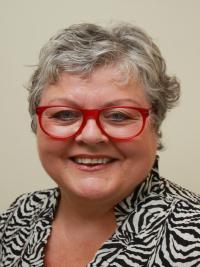
On behalf of the University of Lethbridge’s Center for Oral History and Tradition, sociology professor Dr. Claudia Malacrida’s presented her research on Disability, Sexuality, and Family in Alberta. Over the past fifteen years, Malacrida has been working on two oral history projects and researching the history surrounding the control of sexuality and disability. Her first project is called “Hear My Voice” which involved interviews with survivors from Alberta’s Michener Centre, located in Red Deer, where her interviewees spoke about passive and active eugenics. Her second project is called “A Special Hell”, where Malacrida interviewed institutional survivors, ex-workers, and parents of Michener inmates.
Malacrida gave a brief overview of Alberta’s own horrific eugenics history, including the Alberta Sexual Sterilization Act, which focused primarily on involuntary sterilization of people deemed ‘mentally deficient’. Over 2800 people were involuntary sterilized in Alberta from 1928-1972.
Malacrida’s research focused predominately on Red Deer’s Michener center and the active eugenics that took place in the institution. Malacrida interviewed twenty-four people, twenty-one of whom had been sterilized. She described many horrific stories of active eugenics: a young man who was institutionalized for thirty-one years because he was identified as a ‘slow-learner’, young women that were sterilized to cover up sexual abuse, and people who were lied to and told they were getting their appendixes out, instead of being told the truth about their operations. Malacrida also described the passive eugenics that took place at Michener, and gave an example of a young woman who was institutionalized from age twelve to thirty-seven because she had polio. After recovering, she was deemed unable to return to school, and remained at Michener and was released only after she could no longer bear children.
Currently, Malacrida is researching active and passive ‘newgenics’, which she describes as the current version of eugenics. To exemplify active ‘newgenics’, Malacrida told her audience of a twenty-two year old woman with Down Syndrome, who is engaged to be married, yet has been given incorrect sexual and genetic information and therefore is terrified to have sex even when she gets married. This young woman was told and convinced that if she has sex, she will get pregnant with a baby with Down Syndrome, which this young woman has been told to fear. To exemplify passive ‘eugenics’, Malacrida described typical living arrangements for disabled people, which include day programs, no privacy, open living style, and encouraged isolation.
In conclusion, passive and active ‘newgenics’ is harder to track because these forms seem normal and necessary in our current society. Malacrida argued that we have not moved as far as we would like to think we have when it comes to disabled people who remain vulnerable to our cultural ideas.